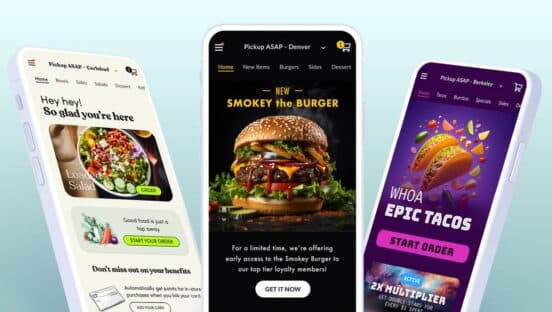Even before the pandemic, the very definition of a restaurant was starting to change thanks to ghost kitchens, virtual brands, off-premises tools, and the broader digitization of the restaurant experience. But COVID-19 has supercharged that process. Now more than ever, operators are discovering that they don’t need brick and mortar to open a concept in a new community; all they really need is a commercial kitchen.
REEF Technology is one company meeting operators in that demand. What originally launched as parking management company ParkJockey has become an organization seeking to utilize its most valuable asset—thousands of parking lots across the U.S. and Canada—by turning lots into venues for goods and services accessible through digital tools.
“What we do is reimagine the parking lot as a neighborhood hub, as a place that because of its close proximity to where people live and work and trade, gives us the opportunity to reimagine this underutilized asset as a place that we can bring goods and services and experiences within blocks to the end user,” says REEF COO Carl Segal, who was formerly an executive with Potbelly and Roti Modern Mediterranean.
Food has become REEF’s first big swing at that goal. REEF Kitchens are food truck–like vessels that Segal says can host four to six brands each, and the company configures these vessels strategically across its properties according to both consumer and partner demand. The vessels then function either as food carts for guests—they often have picnic tables adjacent—or as pickup spots for digital orders, making them de facto ghost kitchens.
Segal says there are now more than 100 vessels in 20-plus North American cities. REEF began by operating proprietary brands out of the vessels, with names like Burger Bytes, Wings & Things, and WokTalk. But in the pandemic, REEF has leaned into partnerships with other restaurant concepts, offering a ghost-kitchen lifeline to those brands suffering from traffic issues due to COVID-19. For example, celebrity chef David Chang’s chicken-sandwich concept Fuku, which closed all brick-and-mortar shops in the wake of the coronavirus, partnered with REEF to serve its food in New York and Miami.
Segal points to BurgerFi as another chain that has enlisted REEF’s services. In cases like this, REEF acts as a licensed operator for the brand—no cost required. “For a brand like that, we’re a perfect fit for them … to help them explore, let’s say, parts of the Southwest, where they haven’t been before, or the Midwestern states, or the Pacific Northwest,” Segal says. “So it allows brands to come in super flexible and do things for really no cost of entry, where they in the past would have had to make major expenditures, not only in terms of capital but also human resources, as well as supply chain logistics.”
REEF chief creative officer Alan Philips compares the company to a platform like Amazon and how it revolutionized e-commerce. “We’re just deleveraging the restaurant business and enabling for a more even playing field,” he says. “We’re enabling brands and entrepreneurs and foodies and chefs to reach people, and we’re evening the playing field between the small guy who makes the greatest hamburger in one small location to the biggest guy who wants to reach their customer and decrease their real estate costs.”
For more on how REEF works and its potential for the restaurant industry, stream the conversation with Segal and Philips above.






